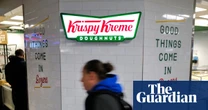Members of Gen Alpha, the generation born after 2010, are a motivated bunch of kids. They are deeply passionate about what moves them, which seems to be driven by algorithms as much as it is by the authenticity of brands and products, a group of experts explained at the Fast Company Innovation Festival last month.
Matt Traub, COO of DKC, recently conducted a study on Gen Alphas and gave them the nickname “the gateway generation” because of how much influence they have over the spending of their entire family. “They are the gateway . . . to ideas and understanding about brands,” he said.
What Gen Alpha is interested in, however, can depend highly on social media algorithms.
Brian Bordainick, the founder of Star Face, a trendy pimple-patch solution, said Gen Alphas are the first generation to grow up with a kind of intense and constant algorithm, which never ceases to spam them with their interests. He explained that the deeply passionate attitude parents often see from Gen Alphas comes from how the algorithm drives them “deeper into these worlds,” only intensifying their “conviction” about certain products or opinions.
Gen Alphas don’t just want to scroll and click, though. Adding their voices into the mix is top priority, and brands have learned how important that interaction is. It’s ever-present in games like Roblox and Fortnite.
Joe Ferencz, CEO of Gamefam, said the algorithm “rewards engagement” and seems to have a “universal calling card, which is engagement and time spent” on the apps.
Fiona Simmonds, cofounder of Pinkie, which makes period pads marketed to tweens and teens, agreed. “Creating that engagement is really what causes some videos that we weren’t expecting to go viral,” she explained. “I think we had one video that had 22 million views, and it was just how to make a pad out of toilet paper in an emergency if you needed to, but it was educational and people started talking about how old they were when they got their periods and that sort of thing.”
A winning aura
It’s hard to talk about Gen Alpha without talking about swag—or “aura,” as they call it, Simmonds said. And according to Ferencz, having what others want is deeply important to techy teens and preteens.
That “clout,” he explained, is what makes social media as well as games like Roblox successful, because “social value” is everything to Gen Alphas.
Still, members of Gen Alpha aren’t vapid. They seem drawn to products that have a kind of authenticity. Bourdainick said that exploring universal truths—like the fact that everyone’s skin breaks out—is a huge selling point that Star Face has leaned into, and even made popular.
“We went into an acne category that was historically built with before and after photos, and we were like, ‘How do you not make people feel crappy about something that’s relatively universal?’” he said.
Gen Alphas are socially conscious, too—they like companies that worry about the environment and “do the right thing,” Traub said. But brands that make them feel good about themselves are equally important. For Gen Alphas, social impact, authenticity, and aura might just be a winning combination.









No comments